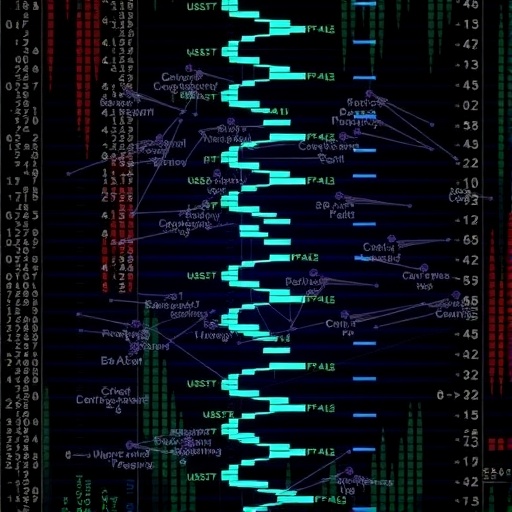In a groundbreaking study published in BMC Genomics, researchers Hrovatin, Moinfar, Zappia, and their colleagues delve into the complexities of integrating single-cell RNA sequencing (scRNA-seq) datasets while addressing the significant issue of batch effects. As the field of genomics rapidly advances, the ability to accurately analyze and interpret single-cell transcriptomic data has burgeoned. However, batch effects can significantly impede the comparability and reliability of these results, leading to questionable inferences if not handled appropriately.
The researchers begin their exploration by elucidating what batch effects are and how they arise. Batch effects occur when differences in experimental procedures, sample processing, or even laboratory environments inadvertently introduce variations into the data. These variations can overshadow the biological signals that researchers aim to detect, thereby complicating downstream analyses and interpretations. In scRNA-seq, where precision is paramount, disentangling these effects from genuine biological variability is particularly crucial.
One of the key highlights of this work is the introduction of novel methodologies designed to mitigate batch effects. The authors propose a robust framework that combines various computational strategies to enhance data integration. This framework includes advanced normalization techniques and machine learning approaches that intelligently model the underlying data distributions to recapture biological signals obscured by batch noise.
Another critical aspect of the research is the evaluation of existing integration methods. The authors meticulously compare multiple currently available strategies, assessing their efficacy in real-world datasets characterized by substantial batch effects. Through rigorous benchmarking, the study identifies which methods perform well under specific conditions, providing invaluable guidance for researchers navigating the complexities of scRNA-seq analysis.
The implications of this work extend beyond merely enhancing technical capabilities. By improving data integration methods, the researchers also contribute to advances in precision medicine. The ability to accurately compare and integrate scRNA-seq datasets across experiments opens new avenues for understanding disease mechanisms and therapeutic responses, ultimately benefiting patient care and treatment strategies.
The study embodies a significant step toward promoting data sharing and collaboration in the genomics community. By addressing batch effects comprehensively, the authors emphasize the importance of standardizing methodologies and encouraging researchers to share their raw data. This culture of openness is likely to facilitate more robust collective analyses, paving the way for major discoveries in the field.
In addition to technical advancements, the study addresses challenges related to reproducibility. Reproducibility is a cornerstone of scientific research, yet it is frequently compromised by batch effects that distort results across different labs and studies. The proposed solutions enhance the reproducibility of findings derived from scRNA-seq, fostering a more trustworthy scientific environment that can build upon previous work.
Furthermore, the research touches upon the ethical considerations surrounding data integrity. As the stakes of genomic research continue to escalate, ensuring that findings are valid and replicable becomes not just a scientific issue but also an ethical one. The authors advocate for increased diligence in statistical methods to avoid misleading conclusions, reinforcing the necessity of ethical standards in genomic research.
Application of the proposed methodologies is evidenced through case studies presented within the paper. Here, the authors demonstrate their framework on diverse datasets, showcasing the dramatic improvements in data clarity and interpretability. These case studies serve as practical examples for researchers looking to adopt similar strategies in their own work.
The authors also explore future directions, highlighting the need for ongoing research into batch-effect mitigation techniques. As the field of single-cell genomics evolves, so too must the strategies to analyze and interpret the burgeoning wealth of data it generates. This work acts as a call to action for researchers to prioritize these issues to fully exploit the potential of scRNA-seq.
Addressing reviewers’ feedback, the authors incorporated numerous validations of their proposed methods, ensuring their findings withstand scrutiny. This commitment to excellence underscores the integrity of their research and their dedication to the advancement of genomic science.
As the conversation surrounding batch effects continues in the scientific community, this paper stands as a pivotal contribution. Both practitioners and theorists in the field of genomics must engage with the findings of this study, integrating the insights into their own work and fostering an ongoing dialogue about improving data integrity and reproducibility.
The need for more sophisticated tools and approaches in data analysis will remain ever-present. Researchers are encouraged not only to implement the techniques discussed in this work but also to innovate further, discovering new ways to address persistent challenges in the field. This study marks a significant venture into achieving data harmonization and integration, setting a high standard for future endeavors in single-cell research.
In summary, Hrovatin et al.’s research is poised to transform how scientists approach the analysis of single-cell RNA-seq data. By effectively addressing batch effects, the study symbolizes a major leap forward in genomics, enabling clearer insights and paving the way for major advancements in the understanding of complex biological systems.
Not only does this work bring to light critical technical challenges in the analysis of genomic data, but it also champions a culture of transparency, collaboration, and ethical responsibility in scientific research. As researchers delve deeper into the realm of single-cell genomics, the contributions of this study will undoubtedly guide the way.
Subject of Research: Integration of single-cell RNA-seq datasets and handling batch effects
Article Title: Integrating single-cell RNA-seq datasets with substantial batch effects
Article References:
Hrovatin, K., Moinfar, A., Zappia, L. et al. Integrating single-cell RNA-seq datasets with substantial batch effects.
BMC Genomics 26, 974 (2025). https://doi.org/10.1186/s12864-025-12126-3
Image Credits: AI Generated
DOI: 10.1186/s12864-025-12126-3
Keywords: single-cell RNA sequencing, batch effects, data integration, genomics, data reproducibility
Tags: addressing batch effects in genomicsadvanced normalization techniques in scRNA-seqbiological variability in transcriptomic datachallenges in single-cell transcriptomicscomputational strategies for data analysisenhancing data integration in genomicsframeworks for analyzing RNA-seq datainterpreting complex genomic datasetsmachine learning in genomic researchmethods for integrating RNA-seq datasetsmitigating batch effects in biological studiessingle-cell RNA sequencing techniques





